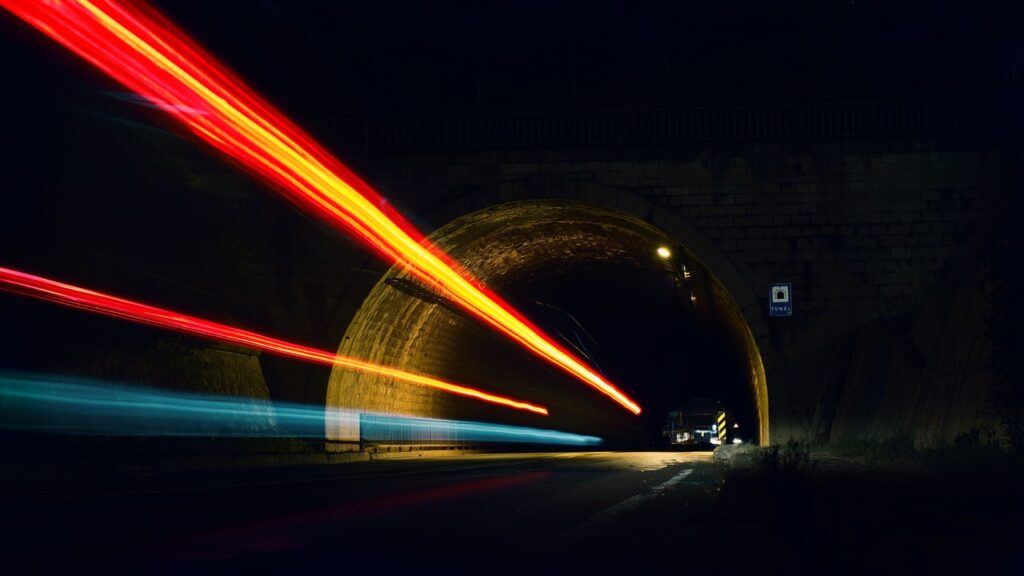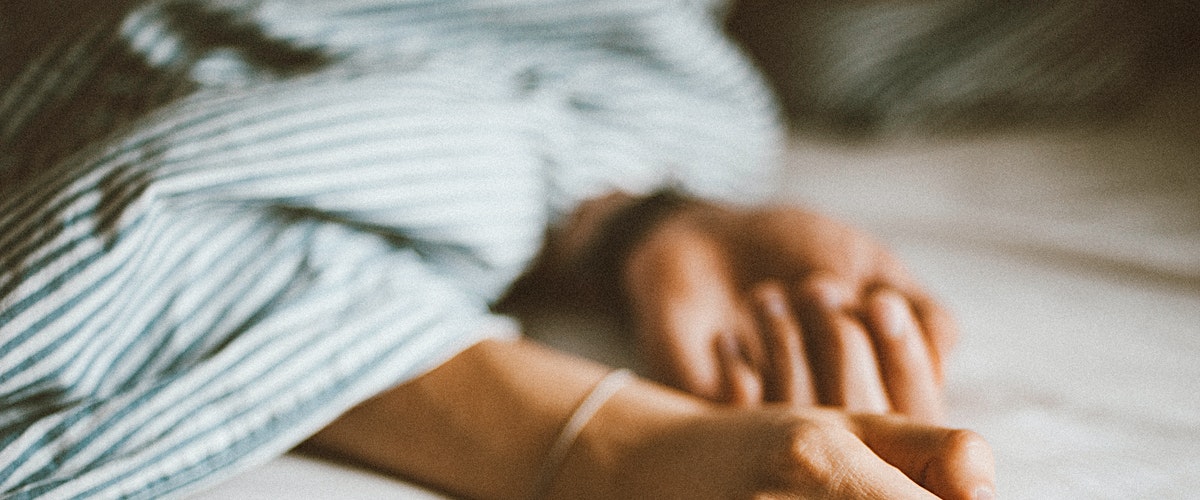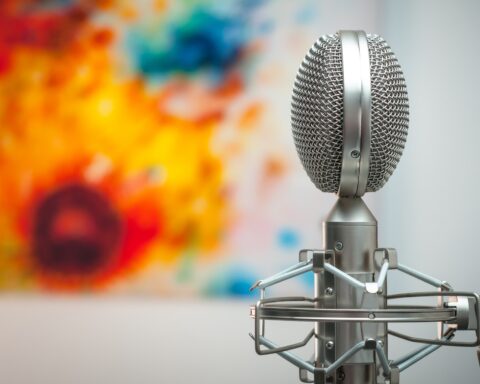One year before finishing school, I started editing videos. It started to become a passion of mine; I would refuse to go to bed before finishing my short films. I started messing up my sleeping schedule, and it slowly converted into my routine; four years after working night shifts and not caring about my amount of sleep, I am beginning to pay bitter penance for all those years. No matter how many hours I sleep, I feel tired all the time; I get sick out of nowhere and deal with anxiety and lack of motivation.
Tired of this lifestyle, I stumbled across a book: “Scientists found a revolutionary new treatment to make us live a better. This treatment would make us more present, showing better results of daily performing, enhancing memory, lowering the risk of severe health issues like dementia, and making us look better than ever. This “magical” cure is called… sleep.“ Why we sleep – Matthew Walker.
Why do we sleep?
The Sleep Foundation describes sleeping as an essential function of every being. It allows for the regeneration of energy, decreases the risk of diseases, and aids the brain in functioning adequately. An adult is supposed to sleep around seven to nine hours, while kids need more. Still, sleeping is more than resting our heads on a comfortable pillow and closing our eyes for 9 hours.
We might think nothing happens while we regenerate and get ready for the next day, but we actually undergo several sleep phases until we reach “rapid eye movement sleep (REM)”.So actually, more than a good quantity of sleep, we also have to consider the quality and avoid the deprivation of REM sleep to achieve it.
What happens while we sleep?
Everything starts hours before we feel tired and desire to lay and rest. Our brain releases adenosine throughout the day; when this compound binds to its receptors, it slows our neuronal activity, causing sleepiness. During the night when the natural light disappears, a hormone called melatonin induces drowsiness. The next day, when natural light appears again, cortisol is released, waking us up.
- 1 NREM is the first part of the tunnel; you start walking through it slowly and carefully, your muscles begin to relax, and you let yourself go into this state, your electrical brain waves go slower, your heart rate decreases
- As you go deeper into the tunnel, everything around you turns blue, and your body temperature starts to drop; your heart rate and brain activity remain calm, you keep walking further and deeper, which takes several minutes.
- 3/4. Ninety minutes after the first stages and the body adaptation, all of a sudden, the brain erupts like a volcano with powerful waves of activity, and the light in the tunnel turns warmer, orange to red, the action begins. Our body and immune system are recharging. Our memories start to consolidate into the brain’s neural architecture the hippocampus, accompanied with REM is very important for learning and memory. However, that’s not the end of the tunnel; you have to go deeper into the second stage.
REM sleep
As soon as you step into the big entrance of REM, you go through a big hole full of colors and figures. You feel vivid and joyful, the brain activity speeds up, however, the logical part of the brain gets shut off, opening the door to all types of hallucinogenic dreams. This stage provides a plethora of benefits for our mental and physical health, such as the contribution to long-term memory, increment of blood pressure, sexual arousal in both genders. On the other hand, the lack of REM could cause excess weight, migraines, and reduced coping skills.
This is a spinning cycle where every stage lasts ninety minutes. You go through the first stage for ninety minutes and to the second one another ninety minutes.

The truth about sleep deprivation
The importance of sleep and its benefits are not new to us; doctors always tell us how essential it is to rest enough. Still, we often underestimate what fulfilling this basic need can do for us. It is hard to admit that we have fallen into a “macho mentality,” neglecting our sleep. Are we genuinely doing well after sleeping two hours less than we should? Years ago, I would think so, nothing that coffee (or two) cannot fix.
David Dinges, professor of psychiatry and sleep researcher, did several experiments to research how sleeping and circadian biology interact to influence cognitive, affective, and physiological functions. The well-known academic did an attention and vigilance test, in which he wanted to prove how sleep deprivation could affect humans.
This experiment consists of pressing a button when a light appears on a screen to test reaction time; the test duration is 10 minutes. Before the experiment, all participants slept for 8 hours, then after being divided into four groups, some of them had to undergo sleep deprivation.
- The first group was deprived for 72 hours.
- The second group slept just 4 hours.
- The third one slept for 6 hours.
- The fourth lucky group slept 8 hours.
This experiment showed that the lucky ones could perform stably while the other three groups had problems. Their reactions were slower; at other times, the participants did not emit a response to the light. Surprisingly, they were not aware of their lack of attention while doing the test, not just showing that their attention was missing but that We don’t know how sleep-deprived we are when we are sleep-deprived!.
The lack of attention shown in the test when the subjects did not react to the light was described as microsleep. This was prevalent in the second group. Dinges says that four hours of sleep for six nights would increase the periods of microsleep to 400%; this is equivalent to 24 hours without sleep.
The power of sleep
In one of my past articles, I explicitly mentioned that the success of our future is hidden in our daily routine, providing ways to establish a routine. While researching this topic, I noticed I forgot to mention that to follow a routine we must have a good quality of sleep.
The experiment did not just show that the deprivation decreases our ability to concentrate; it also compromises our mental and physical well-being.
Matthew Walker, sleep researcher and author of “Why We Sleep” mentions in his book and TED talk the “harmless effect” of daylight savings. This is an annual ritual where people in the Northern Hemisphere set the clocks ahead one hour in spring in order to make use of the daylight in summertime. The day after this, 24% more heart attacks than usual are registered, and every fall precisely one day after the clocks are shifted back, the percentage of heart attacks is reduced by 21%. Losing one hour of sleep and an interrupted cycle also cause more traffic accidents. Here, microsleep plays a significant role, since a sleep-deprived driver cannot react fast enough to stop when a kid is running behind his ball into the street.
Lack of sleep also compromises our mental health. Sleep deprivation causes a 60% increase in vigorous activity in the amygdala, representing a lack of emotional control. After some nights of lousy sleep, the nasty symptoms of feeling demotivated, sick and anxious, start to pop up. Our lack of knowledge about sleep makes us blame external triggers before analyzing that these awful feelings might be due to sleep deprivation. Suddenly, someday after a good night’s rest, we surprisingly feel good again. Sleeping sufficiently balances our emotions with the prefrontal cortex, the rational part of our brains.
Unlocking the power
We all may have heard the say “Don’t worry, you’ll get enough sleep when you die” as an excuse to “live more” and have more fun or be more productive. Well, this saying may take your life away before you could enjoy it. There are absolutely no benefits to not getting good quality sleep. Sleep deprivation is not providing us more hours of fun, it compromises our whole well-being, costing us our vitality and productivity. Sleeping is not a negotiable need; Matthew Walker gave us tips to get a good quality sleep.
- Give way to melatonin: As a sleep-deprived society, darkness seems to be one of the biggest challenges for us. The daylight disappears, still, we grab our electronic devices and let the artificial light be our company every night, tricking our brain into thinking it’s still daytime.
- Cold temperature: Decreasing the temperature to fall asleep is vital. It enhances the natural temperature of the body while sleeping.
- Taking a hot shower before bed: A hot shower drops body temperature, making us sleep better and faster.
- Regularity: Establishing a fixed time to go to bed and wake up every day is crucial.
- Avoid alcohol: Sedation is not equal to sleep. When we drink and go to bed, we sedate our cortex, causing fragmentation sleep. We wake up often during the night, and can’t recall it due to the alcohol.
- Getting sufficient sleep: An awareness of the consequences of not getting enough sleep seems to be irrelevant nowadays.
Let’s test ourselves.
Living in a sleep-deprived society and getting used to the lack of sleep is a lot easier than we might think ; we are not aware of its deficiencies and how they affect our mental health, cognitive, and affective skills until we stop being deprived.
So how about a challenge? I challenge you to observe and take notes on how you feel in your everyday routine, how productive and joyful you are, and then build a healthy sleep routine and notice the changes between sufficient sleep and lack of sleep.
Surprise yourself by the results and be consistent with whatever makes you feel better, but remember, if you want to live long and well, now is the moment to get the right amount of sleep.
Featured image: Daria Shevtsova on Pexels.





